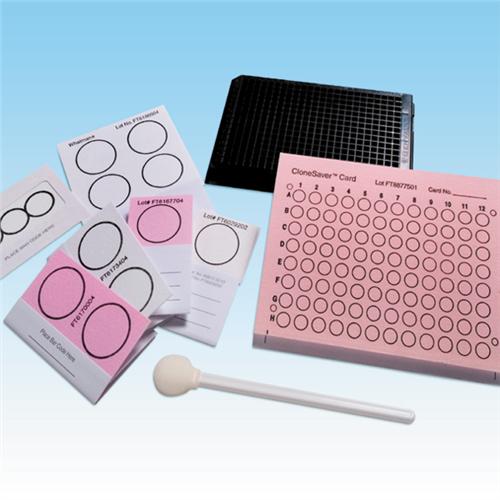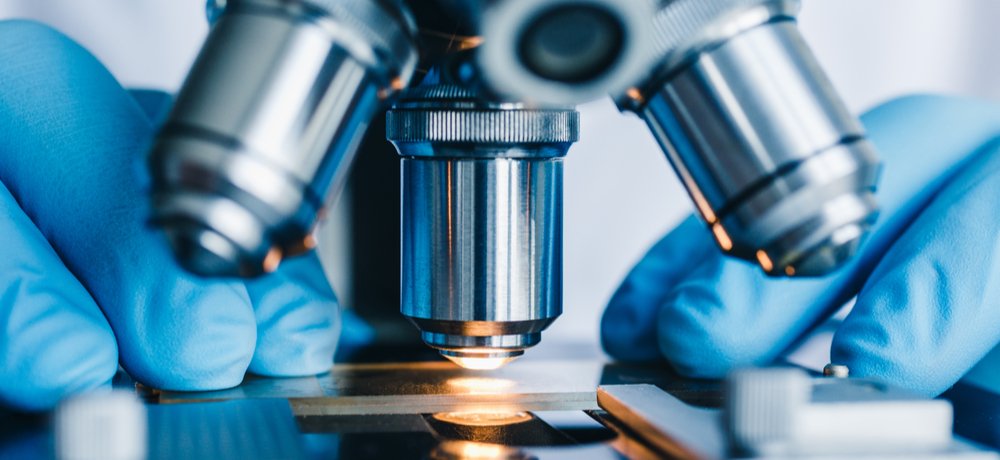The acronym FTA stands for “Flinders Technology Association”. FTA CARDS are chemically treated Whatman filter papers that are designed for the collection, preservation and shipment of biological samples including clinical and environmental samples for subsequent DNA and RNA analysis. FTA cards are cotton-based, cellulose paper containing chemicals that lyse cells or biological samples, denatures proteins, and protects nucleic acids (which are immobilized onto the card’s matrix) from further destruction either by UV light or by oxidation or by nucleases.
When cells or biological samples are applied to FTA cards the cells are lysed and the nucleic acids are immobilized and stabilized within the cards matrix. Apart from being used to collect biological samples, FTA cards can be used for storing or preservation of samples prior to their usage; and they can also be generally used to transport biological samples from one point to another before any further analysis such as DNA and RNA analysis can be performed on or with them. For example, FTA cards can be used to collect, preserve and transport biological samples from one continent or country to another.
The FTA cards come in different card sizes and formats. However, they are used for the same purpose of collecting, preserving and transporting biological samples from one location to another. FTA cards are the most convenient shipment platforms for biological samples. They are fast and easy to use. And can be used for sequencing or genotyping studies. FTA cards can be procured from companies such as the Merck KGaA, Germany, Aviagen, and the GD Animal Health company in Deventer.
Collection, shipment and storage of biological samples when using FTA cards is very convenient. FTA chemistry has been optimized to lyse cells and denature proteins upon application of the biological sample onto the card to protect nucleic acids (DNA or RNA) from nucleases, oxidation and UV damage. After samples have been applied and allowed to dry on the FTA cards, the released nucleic acid molecules from the samples remain continuously immobilized in the fibers of the matrix of the FTA cards; and they are thus preserved for transport or shipment and later processing in the laboratory.
FTA cards simplify the isolation, purification and storage of nucleic acids for a variety of research and diagnostic application in the molecular biology laboratory. The FTA cards can be used with various materials, swabs, tissue or blood (one spot can capture 125 µl whole blood). Other biological samples such as urine can also be collected, preserved and transported on the FTA cards.
Samples on the FTA cards can only be tested with molecular biology diagnostic methods like PCR and sequencing. FTA cards cannot be used to culture viruses, fungi, protozoa or bacteria. FTA cards allow DNA samples collected on it to be preserved for years at room temperature. They allow for the capture of nucleic acid molecules in one easy step; and captured nucleic acid molecules (DNA or RNA) can be made ready for downstream applications in less than 30 minutes.
The benefits of using FTA cards include:
- There is no risk of spreading infectious disease agents due to the chemicals included in them. FTA cards keeps samples intact, and this minimizes the risk of spreading infectious disease or infectious disease agents in the samples they are carrying.
- There is usually no import permit required when they are used.
- FTA cards allow biological samples to be transported at room temperatures from one location to another location no matter the distance.
- It allows biological samples to be submitted through regular courier or post mail services without the fear of contamination or infection spread.
- The cost of transporting FTA cards carrying biological samples is usually low.
Precaution to take when applying biological samples onto the FTA cards
- Gloved hands should be used when handling the FTA cards and biological samples. Always wear gloves when handling the FTA cards to avoid contamination. Each of the FTA card should be properly labeled with a card or sample identification number.
- Few drops of the samples including urine or blood should be placed on the FTA cards in order to obtain sufficient material for molecular testing. The inside of the cut slice of tissue samples or the swab carrying the sample can be pressed firmly onto the FTA card in order to get sufficient material for PCR analysis.
- The colour indicator in the FTA card usually turns from pink to white when the sample material is present on the FTA card.
- Samples on the FTA cards should be allowed to dry at room temperature and normal humidity prior to their preservation or shipment. This reduces the need for laboratory freezers.
- All unused FTA cards should be properly stored in a cool dry place.
- In some cases, it is important to put the dried samples through a microwave treatment before submitting the FTA cards. Usually, FTA cards should be heated for 20 seconds at 900 watt.
Application of FTA cards
FTA cards can be applied in the following research applications or investigations:
- Molecular biology
- Whole genome sequencing
- Animal identification
- Transgenic identification
- Genomic studies or genomics
- Plasmid screening
- Transfusion medicine
- Drug discovery
- STR analysis
- Food testing
- Other agricultural testing
- Whole genome amplification
References
Bitesize Bio: Life Science & Bioscience Articles for Researchers
Discover more from #1 Microbiology Resource Hub
Subscribe to get the latest posts to your email.



